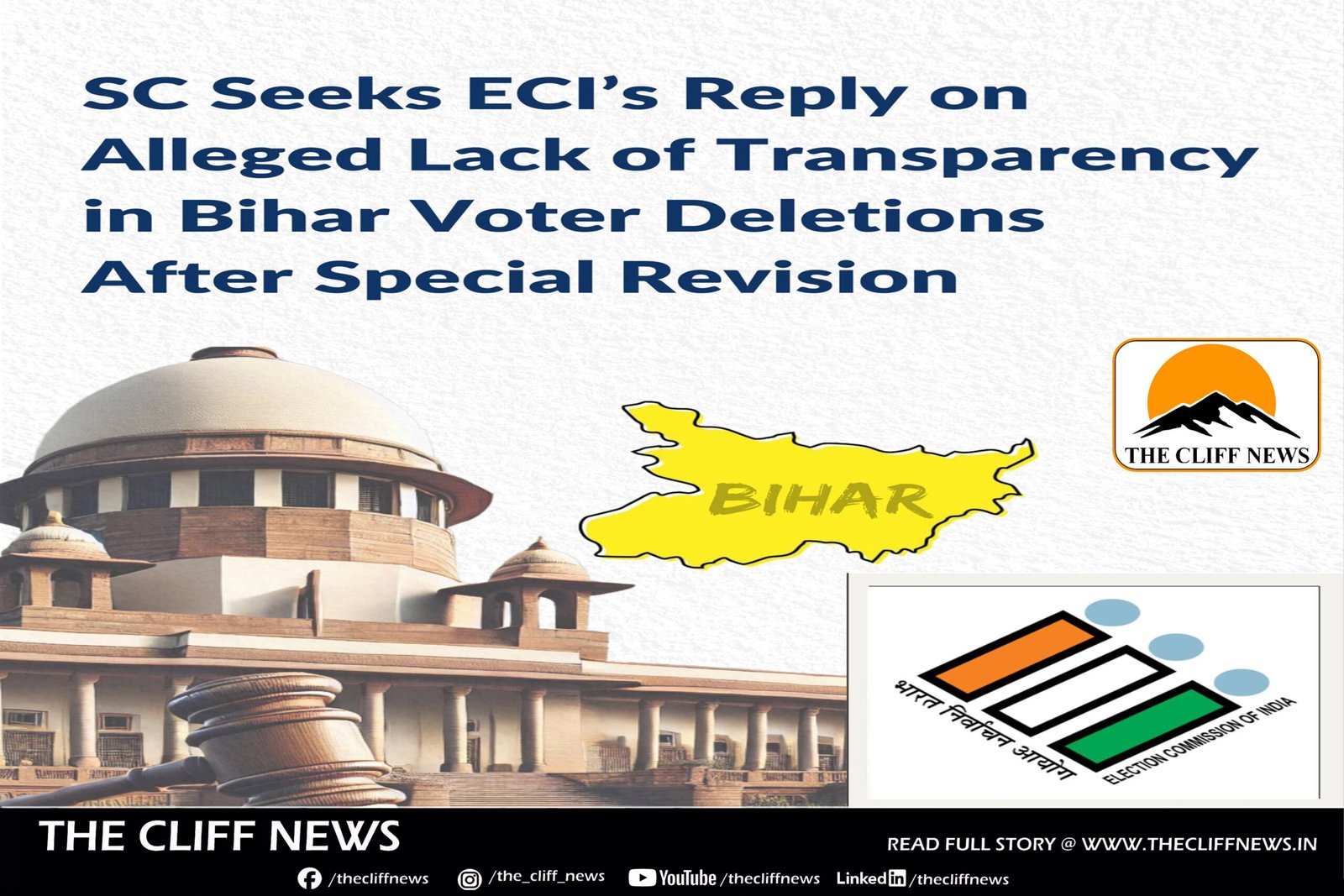The Supreme Court of India on Wednesday directed the Election Commission of India (ECI) to file a comprehensive reply by August 9 in response to serious allegations that over 65 lakh names were removed from Bihar’s draft electoral rolls without transparency during the Special Intensive Revision (SIR) exercise.
A bench comprising Justices Surya Kant, Ujjal Bhuyan, and N. Kotiswar Singh was hearing an application filed by Association for Democratic Reforms (ADR), which raised concerns over lack of clarity and transparency in the ECI’s actions.
Allegations of Opaque Process
Appearing for ADR, Advocate Prashant Bhushan told the court that the draft list released on August 1 did not specify who the omitted voters were — whether they were deceased, had migrated, or fell into other categories.
He further alleged:
- Political parties were not given access to draft rolls at the block level.
- In many cases, BLO (Booth Level Officer) recommendations were bypassed.
- Around 75% of included names lacked necessary documentation, and
- Nearly 12% of entries in two constituencies lacked BLO endorsement.
Supreme Court’s Observations and Directions
The bench emphasized the need for procedural integrity and transparency:
“As per standard operating procedure, draft rolls must be shared with political parties at the block level. This must be ensured.”
The court asked the ECI to clarify:
- Whether the draft rolls were shared with political parties, and if so,
- To submit the list of parties to whom the draft rolls were provided.
It instructed the ECI to file a detailed reply by August 9, addressing these concerns, and added:
“We will ensure that every voter likely to be affected is informed and given an opportunity to comply with requirements. Political parties and local administration must be in possession of the requisite information.”
ECI Refutes Claims
The ECI’s counsel denied the allegations, stating that the draft roll had been shared with political parties and made publicly available.
“We are obligated to make the draft roll available. We can show that it was shared with political party representatives,” the counsel said.
The court responded that if the ECI stands by this claim, it should clearly state so in its reply.
Background: SIR and Constitutional Questions
The controversy stems from the ECI’s June 24 notification initiating the SIR under Section 21(3) of the Representation of the People Act, 1950.
Petitioners have raised key concerns:
- The demand for only 11 specific documents as proof of citizenship has no legal basis and may disenfranchise legitimate voters, especially from marginalised communities.
- The ECI’s authority to verify citizenship is being questioned, as this is constitutionally the domain of the Union government.
Earlier, on July 10, a separate Supreme Court bench had framed three legal questions:
- Does the ECI have the authority to conduct a special revision like the SIR?
- Is the process legally valid?
- Is the timing appropriate, given upcoming Bihar Assembly elections?
The court had noted these issues go to the heart of a democratic republic and the fundamental right to vote.
Previous SC Remarks
On July 28, the court had refused to stay the draft roll publication but urged caution, reminding the ECI:
“The SIR must promote inclusion, not mass exclusion… Aadhaar and EPIC should carry a presumption of genuineness.”
The court also warned against en masse exclusion, emphasizing that forgery can be handled case-by-case, rather than by blanket deletions.
Next Hearing on August 12
The matter is now scheduled to be heard again on August 12, by which time the ECI is expected to address all procedural, legal, and constitutional concerns raised by the petitioners and the court.



